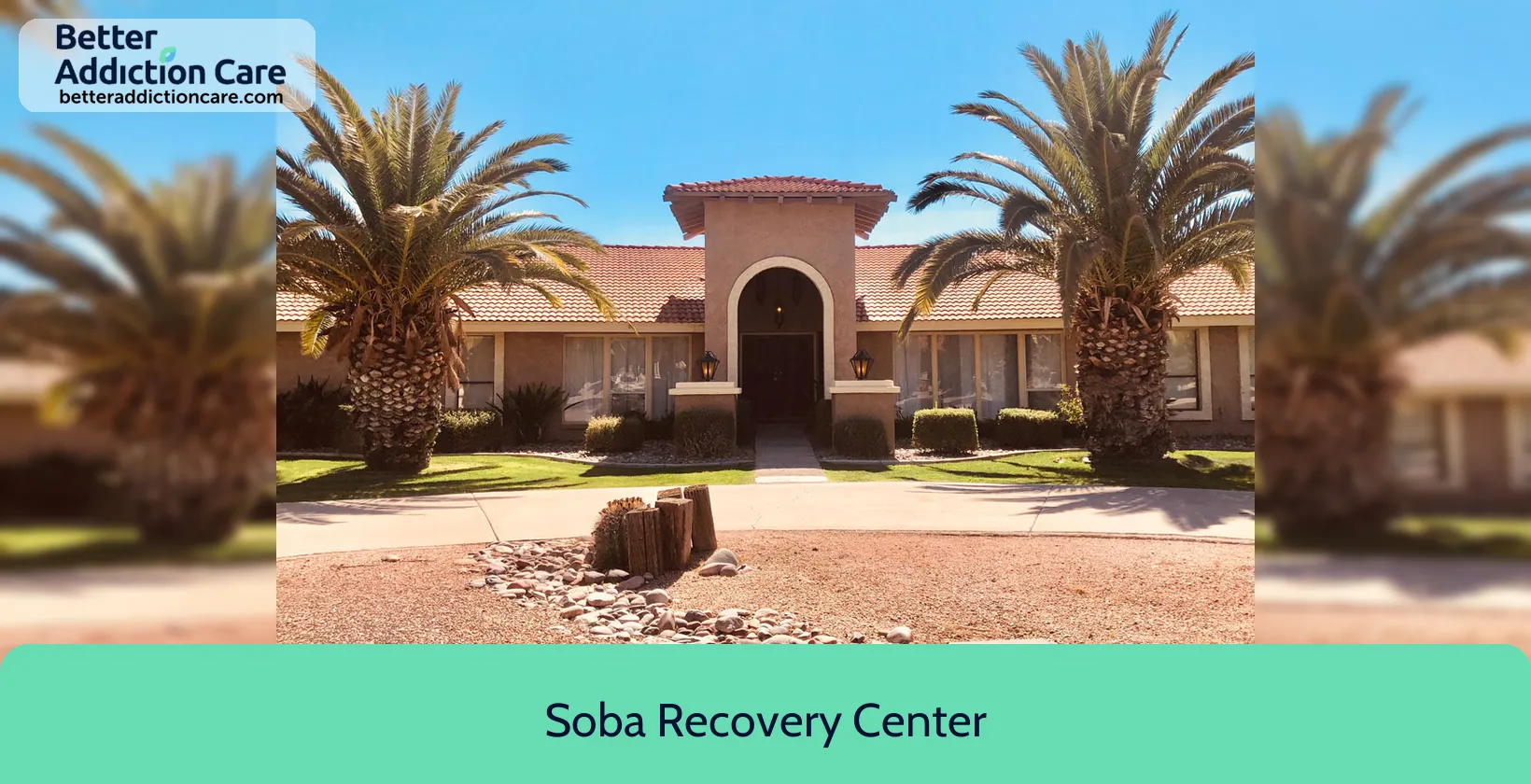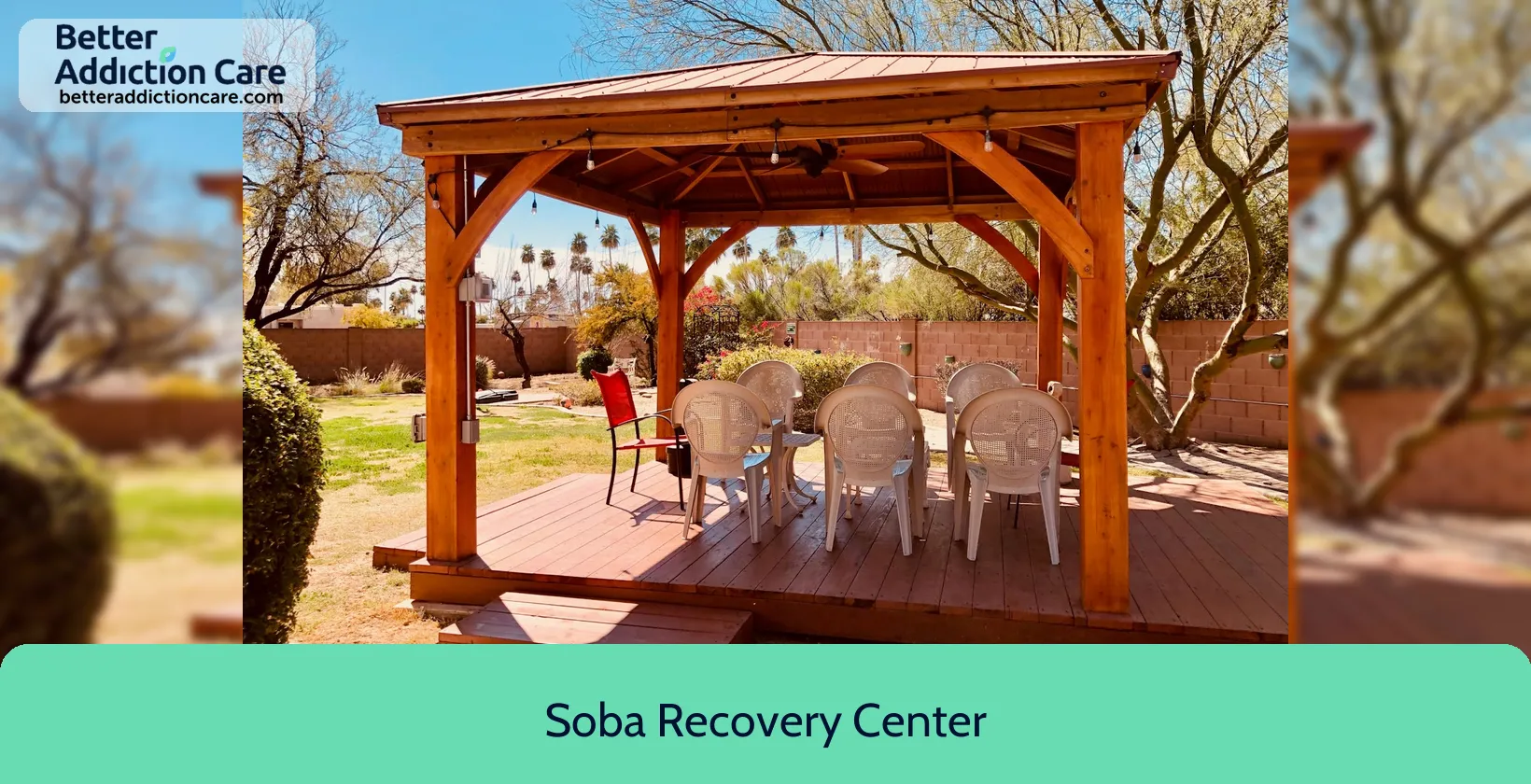Soba Recovery Center
Overview
The creative and reasonably priced holistic rehab center SOBA Recovery Center is situated in Mesa, Arizona, and offers thorough addiction therapy to those with drug use problems. In order to promote long-term recovery and comprehensive well-being, the facility provides a broad variety of programs, such as residential treatment, sober living, detoxification, and outpatient treatments. The facility complies with the strictest quality and safety standards since it is certified by LegitScript, regulated by the state of Arizona, and recognized by the Joint Commission.
The treatment strategy at SOBA Recovery Center places a strong emphasis on relapse prevention, customized care, goal-setting, and upholding good lifestyle practices. Through each program's group and individual therapy, clients are led through a comprehensive continuum of care that includes detox, residential inpatient treatment, sober living, and outpatient care. The center's dedication to upholding high standards of treatment is further shown by its certification by the Arizona Department of Health Services.
The SOBA Recovery Center offers a wide range of specialized treatments that are designed to improve the chances of recovery. These services include medication management, process groups, acupuncture, horse therapy, clinical laboratory tests, and physical fitness activities. To provide a comprehensive rehabilitation experience, the clinic also incorporates case management, mindfulness techniques, meditation, and teaching on nutrition and wellbeing. SOBA exhibits its commitment to providing safe, moral, and efficient addiction treatment services by its accreditation and certifications, which include being a recognized Rehab Aid facility.
Beacon, Blue Cross Blue Shield, Aetna, Cigna, Anthem, Humana, Evernorth Health Services, Elevance, TRICARE, Kaiser Permanente, and United Healthcare are just a few of the major insurance companies that the center works with. Before enrolling, customers should confirm their insurance information directly with the center and their insurer, since coverage and perks may differ. The widespread acceptance of insurance plans contributes to SOBA's goal of offering easily accessible, patient-centered treatment to everyone in need.
With many sites throughout the country, SOBA Recovery Centers provide clients access to high-quality care that is specialized in treating the underlying causes of addiction. The clinic guarantees that every client gets a customized treatment plan that enables them to overcome their obstacles and create a better future by offering a complete continuum of care. SOBA is a pioneer in the area of addiction rehabilitation because of its ability to combine compassionate, patient-focused care with high-quality, evidence-based therapy.
Soba Recovery Center at a Glance
Payment Options
- Cash or self-payment
- Private health insurance
- Self-pay options
- Aetna
- Blue Cross and Blue Shield Association
Assessments
- Screening for tobacco use
- Comprehensive mental health assessment
- Comprehensive substance use assessment
- Outreach to persons in the community
- Screening for mental disorders
Age Groups
- Young adults
- Adults
Ancillary Services
- Case management service
- Integrated primary care services
- Suicide prevention services
- Domestic violence services, including family or partner
- Early intervention for HIV
Highlights About Soba Recovery Center
7.46/10
With an overall rating of 7.46/10, this facility has following balanced range of services. Alcohol Rehabilitation: 8.00/10, Drug Rehab and Detox: 6.62/10, Insurance and Payments: 6.67/10, Treatment Options: 8.55/10.-
Treatment Options 8.55
-
Alcohol Rehabilitation 8.00
-
Insurance and Payments 6.67
-
Drug Rehab and Detox 6.62
Accreditations
The Joint Commission:

The Joint Commission, previously known as JCAHO, is a nonprofit organization that accredits rehabilitation organizations and programs. Established in 1951, its mission is to enhance the quality of patient care and showcase excellence in healthcare delivery.
Effective date: 03/23/2018
Registration: 576436
State department of health:

Government agencies issue State Licenses, which grant rehabilitation organizations permission to conduct their operations lawfully within specific geographic regions. Licenses needed to operate are typically determined by the type of rehabilitation program offered by the facility and its physical location.
Registration: OTC6989
Treatment At Soba Recovery Center
Treatment Conditions
- Alcoholism
- Substance use treatment
- Mental health treatment
- Co-occurring Disorders
- Opioid Treatement
Care Levels
- Outpatient
- Outpatient day treatment or partial hospitalization
- Intensive outpatient treatment
- Regular outpatient treatment
- Aftercare
Treatment Modalities
- Cognitive behavioral therapy
- Substance use disorder counseling
- Trauma-related counseling
- Smoking/vaping/tobacco cessation counseling
- Group counseling
Ancillary Services
Additional Services
- Pharmacotherapies administered during treatment
- Mentoring/peer support
- Breathalyzer or blood alcohol testing
Special Programs
- Clients with co-occurring mental and substance use disorders
- Clients who have experienced trauma
Get Help Now
Common Questions About Soba Recovery Center
Contact Information
Other Facilities in Mesa

6.71

6.66
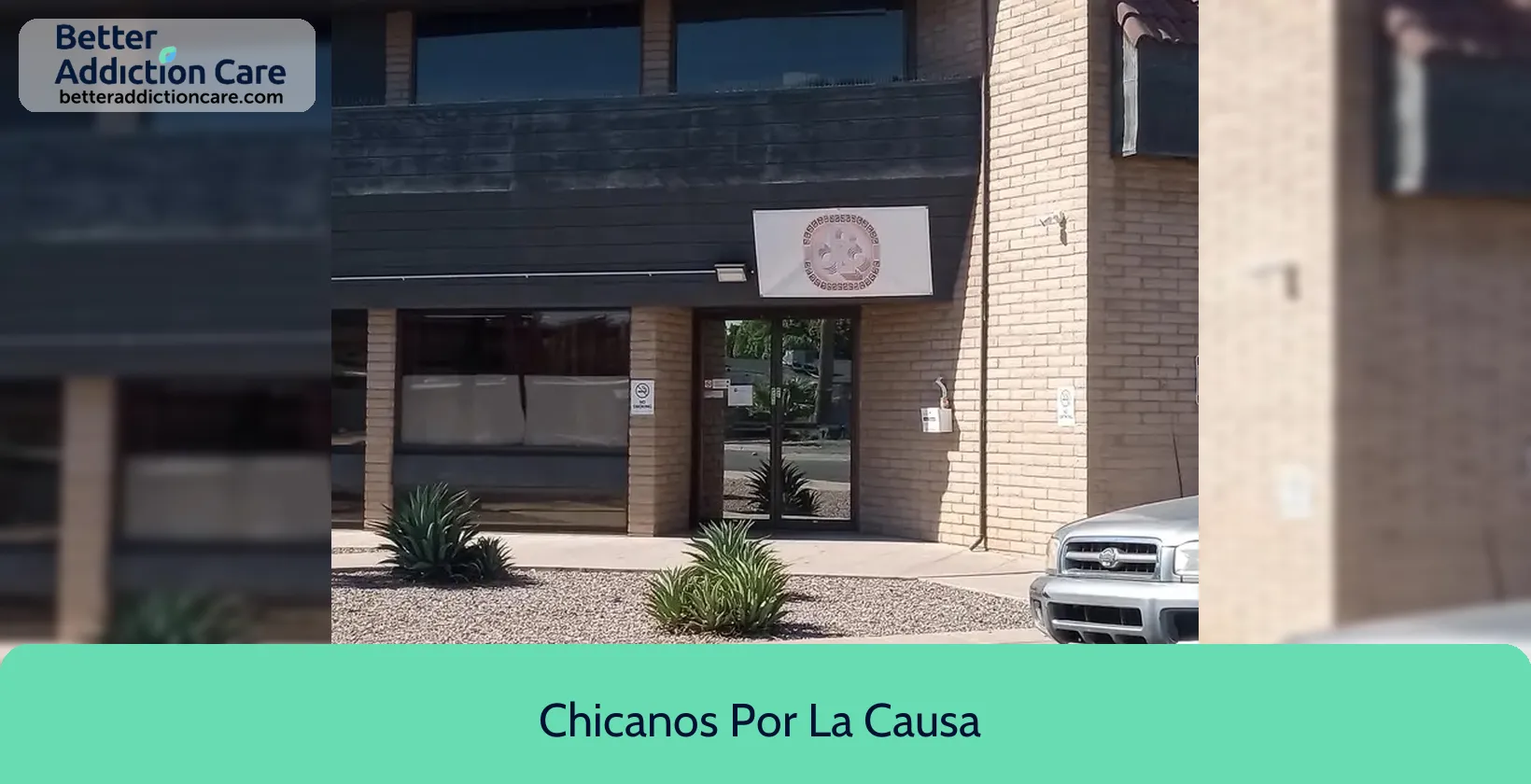
6.62

7.31
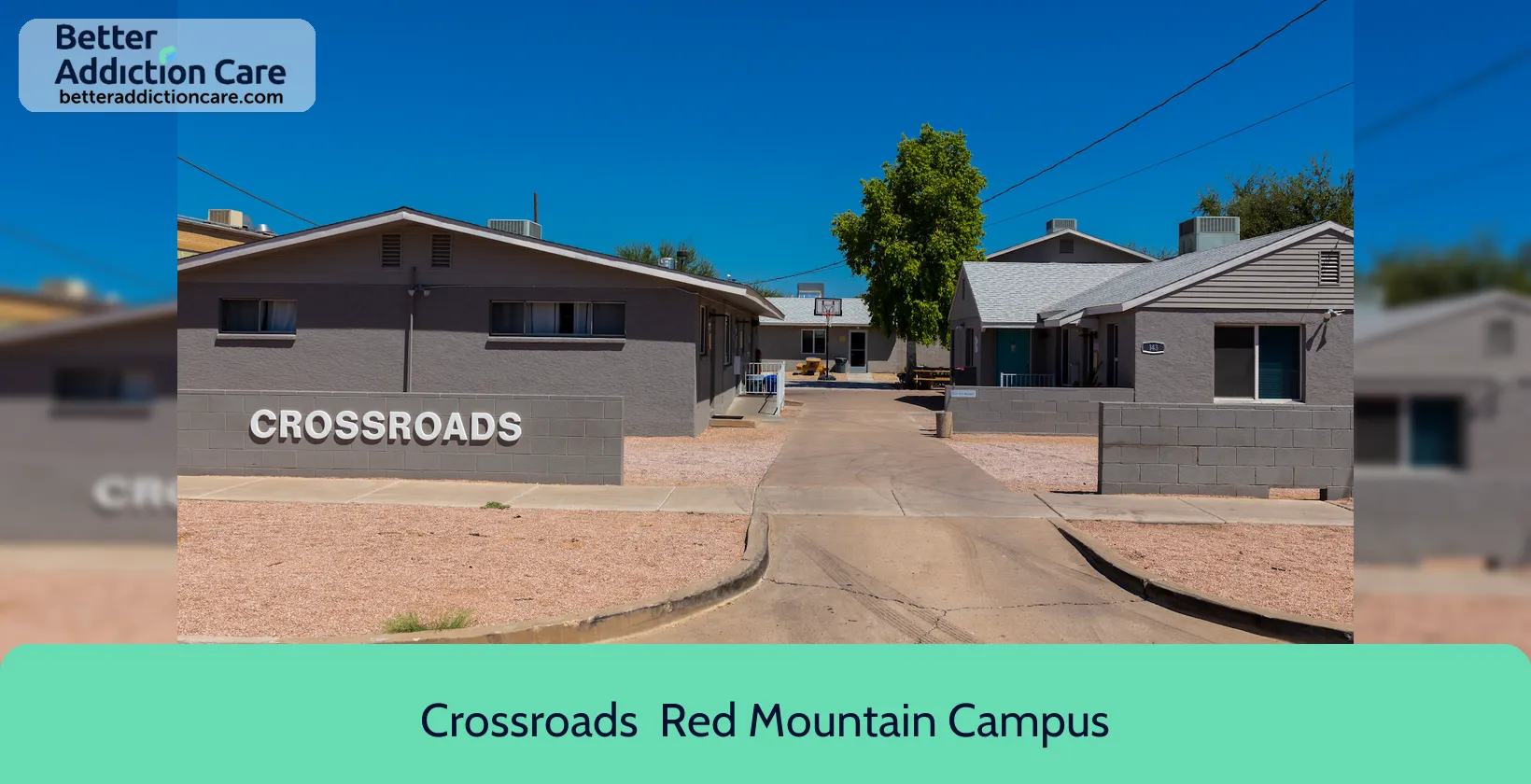
6.56
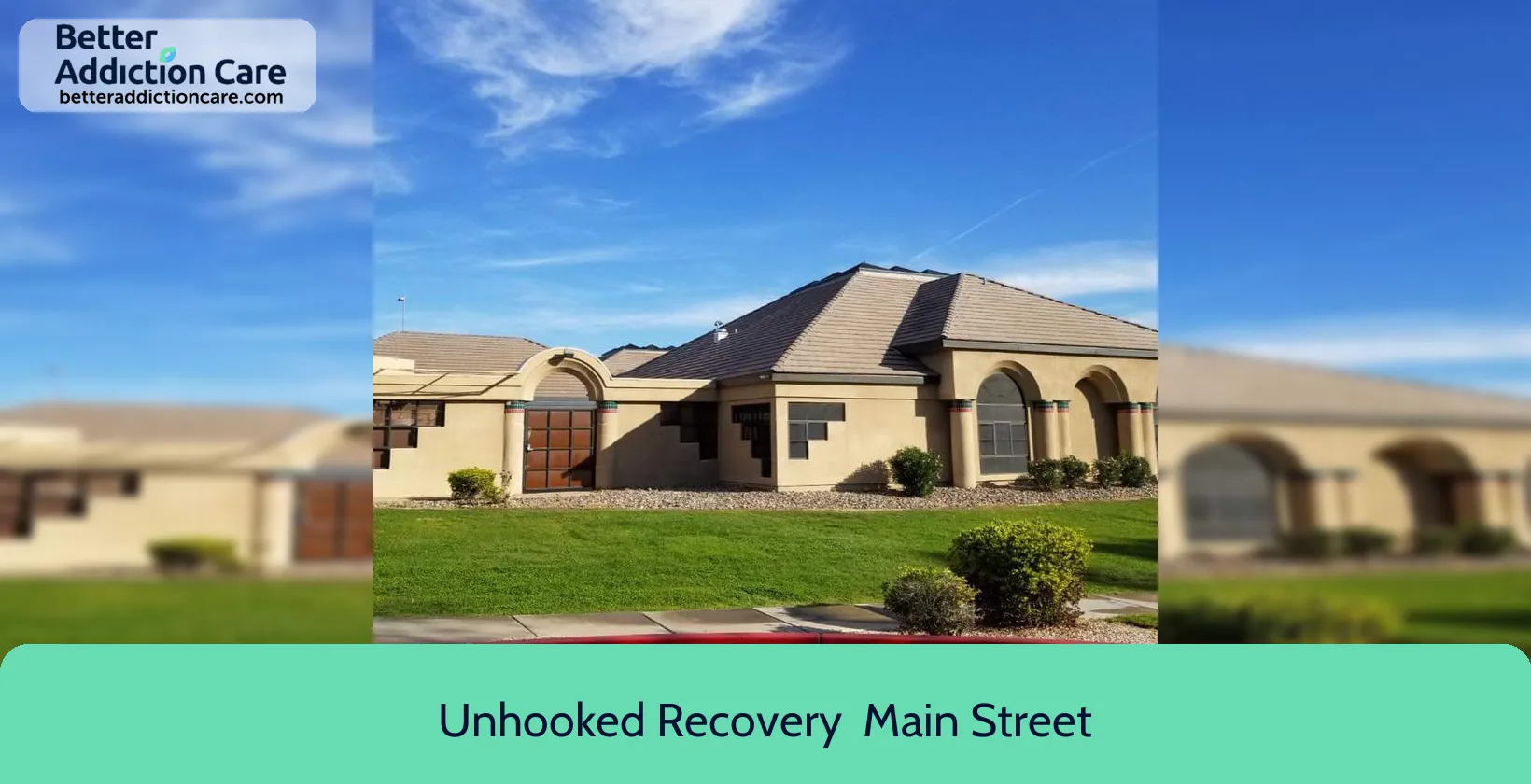
6.89

6.65

7.39
DISCLAIMER: The facility name, logo and brand are the property and registered trademarks of TLC Treatment Center 32 South Macdonald Street, and are being used for identification and informational purposes only. Use of these names, logos and brands shall not imply endorsement. BetterAddictionCare.com is not affiliated with or sponsored by TLC Treatment Center 32 South Macdonald Street.
